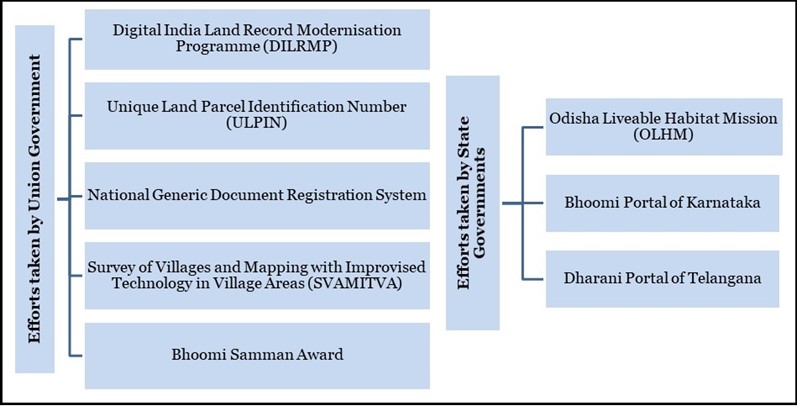7667766266
enquiry@shankarias.in
Recently, while presenting Bhoomi Samman Award 2023, President Draupadi Murmu said that land digitisation will curb land-linked illegal activities.
The subject of ‘Land’ and its management falls under the State List provided under Entry 18 and Entry 45 of List II of Seventh Schedule of Indian Constitution.
|
Status of Land Digitisation in India |
|
A NITI Aayog report showed that land disputes take an average of 20 years to resolve.
The Standing Committee of Finance’s 28th report on the Benami Transactions Prohibition (Amendment) Bill, 2015 highlights the impact of digital land records on the poor and vulnerable and the difficulty of genuine landowners in establishing their titles.

References